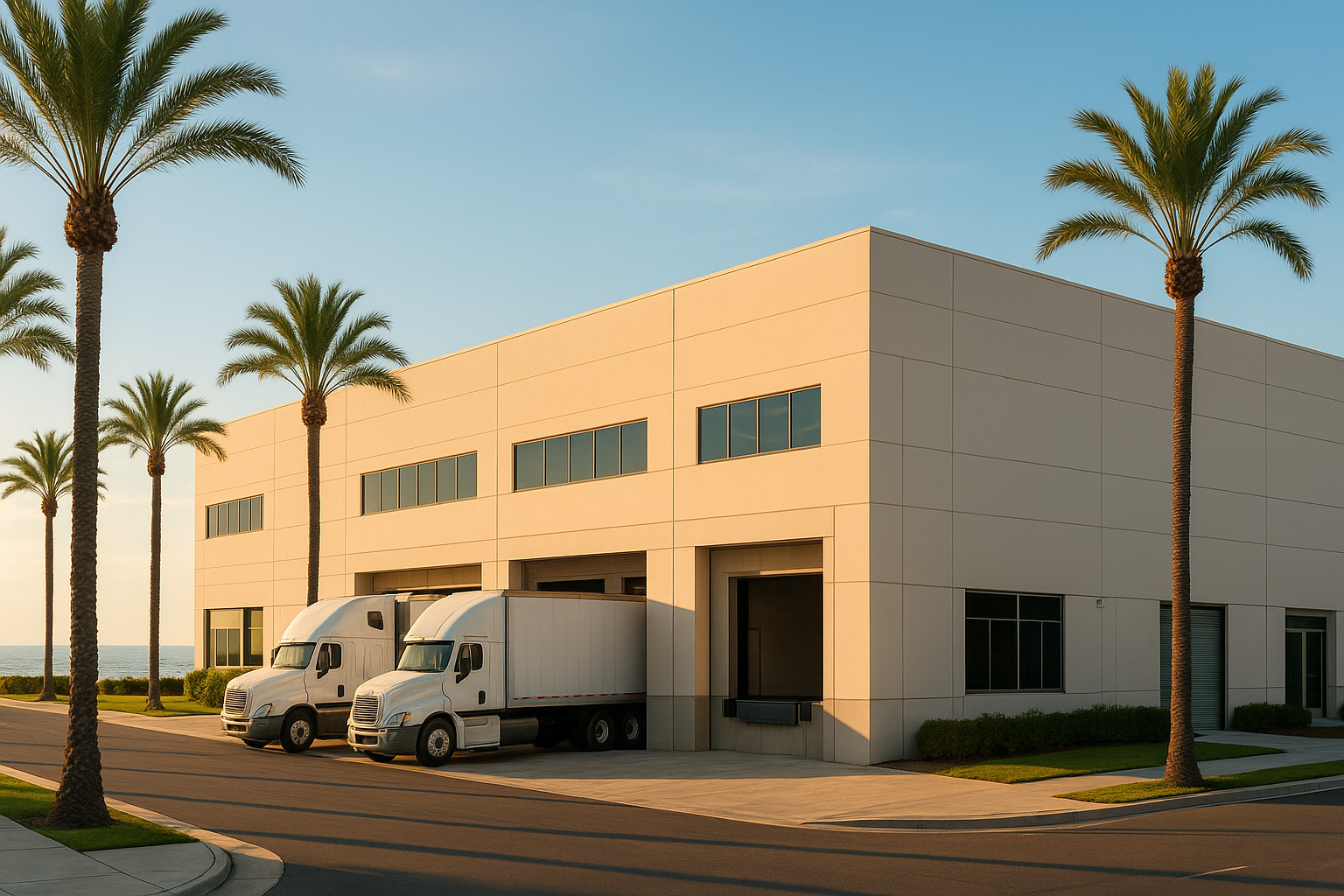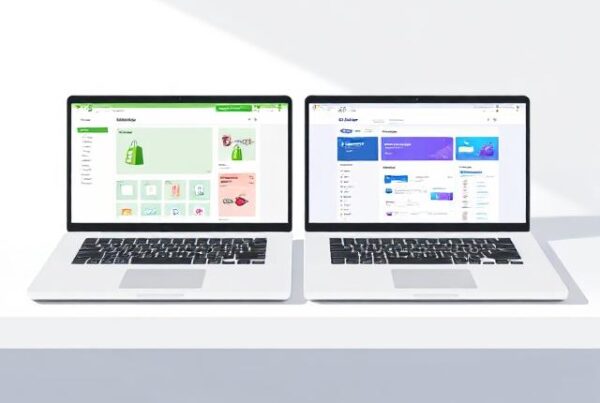Shipping expenses consume nearly 9% of the average business’s first-year budget, and surprisingly, 34% of retailers underestimate these costs when starting. If you’re running a Shopify store in San Diego, choosing the right contract warehousing San Diego Shopify solution could be the difference between struggling with logistics and scaling your business efficiently.
As your online store grows, so do the warehousing and fulfillment challenges that accompany it. Effective Shopify warehouse management San Diego isn’t just about storing products; it’s about creating systems that support rapid scaling and reduce overhead costs. With inventory shrinkage costing retailers an estimated $142 billion annually, partnering with the right Shopify 3PL provider becomes crucial for maintaining a strong bottom line. Additionally, a well-equipped 3PL Shopify integration can help you meet increasing demands within days, sometimes even hours.
Throughout this guide, you’ll discover when contract warehousing San Diego Shopify makes sense for your business, how it differs from other fulfillment options, and why proper warehouse management can significantly improve your customer satisfaction through faster deliveries. Whether you’re processing hundreds or thousands of orders monthly, the right Shopify fulfillment strategies San Diego will help you maintain the 48-hour fulfillment window that today’s customers expect.
Understanding Shopify Fulfillment in San Diego

For San Diego-based e-commerce businesses, selecting the right Shopify fulfillment strategies San Diego can have a significant impact on your bottom line. Let’s explore why this Southern California hub offers unique advantages for Shopify store owners and how contract warehousing fits into your growth strategy.
1. What makes San Diego a strategic location
San Diego’s position creates natural advantages for Shopify merchants seeking efficient fulfillment solutions. As a regional logistics hub, it enables one- to two-day ground shipping throughout the Southwest. This strategic placement makes it particularly valuable for businesses targeting customers in Southern California, Nevada, and Arizona.
The proximity to the Port of San Diego simplifies operations for businesses importing products. Moreover, businesses utilizing San Diego-based fulfillment centers benefit from shorter delivery times to local customers while maintaining reasonable shipping costs to other regions. This geographical advantage becomes especially valuable for contract warehousing San Diego Shopify operations, considering that about 11.7% of the U.S. population resides in California, representing a substantial customer base within easy reach.
Unlike fulfillment centers in more remote areas, San Diego’s location offers Shopify merchants the practical benefit of in-person support and faster onboarding with local third-party logistics (3PL) providers. This hands-on approach can prove invaluable during initial setup and when troubleshooting complex logistics challenges. For businesses considering professional development services, working with experienced Shopify website designers in San Diego can ensure your store integrates seamlessly with your chosen fulfillment solution.
2. Overview of Shopify fulfillment options
Shopify fulfillment strategies San Diego offers several approaches for your growing store. The Shopify Fulfillment Network connects merchants with trusted third-party logistics (3PL) partners who manage inventory, fulfill orders, and position products closer to customers. This network allows you to compare partners based on pricing estimates, capabilities, and performance metrics before selecting one that integrates with your store admin.
After choosing a partner, you’ll send your products to their fulfillment centers, where they’ll handle storage, picking, packing, and shipping. The entire process remains visible through your Shopify dashboard, allowing you to monitor shipments, inventory levels, returns, and overall business performance from a single interface.
The integration process is straightforward for most popular eCommerce platforms. Many San Diego fulfillment providers offer seamless integration with Shopify, WooCommerce, Amazon, and BigCommerce. This connectivity ensures your inventory and order management systems work together smoothly, reducing manual processes and potential errors. To maximize efficiency, consider implementing specialized Shopify fulfillment apps that can further streamline your operations and improve customer satisfaction.
3. Role of 3PL in local eCommerce growth
Third-party logistics providers have become crucial growth enablers for San Diego eCommerce businesses. By partnering with a 3PL, you can redirect your focus and resources toward core competencies, such as marketing, product development, and customer service, instead of managing complex logistics operations.
These providers offer significant scalability advantages. During seasonal peaks or periods of growth, 3PLs can efficiently handle increased order volumes without requiring permanent staff increases. This flexibility proves particularly valuable for Shopify merchants experiencing fluctuating demand patterns.
The financial impact can be substantial. ShipBob customers, for example, report 25% savings on shipping costs by distributing inventory across multiple regions, 13% cost savings to their bottom line, and an 18% reduction in cart abandonment rates. Furthermore, businesses working with 3PLs have seen a 38.5% improvement in shipping speed.
For local Shopify store owners, the right 3PL partnership translates to practical benefits, including:
- Real-time order tracking and inventory management
- Same-day order fulfillment for faster customer delivery
- Access to volume-based shipping discounts
- Enhanced customer experience through faster deliveries
By leveraging contract warehousing San Diego Shopify through a specialized 3PL, your store can achieve the logistics efficiency typically reserved for much larger operations while maintaining the flexibility needed to adapt to market changes.
Shopify Store Development Cost in San Diego 2025: From DIY to Pro Design: Planning to launch or redesign your Shopify store in San Diego? Understanding development costs is crucial for budgeting your e-commerce venture. From DIY solutions to professional design services, discover what you’ll spend and how to maximize your investment for long-term success.
What is Contract Warehousing and How It Works
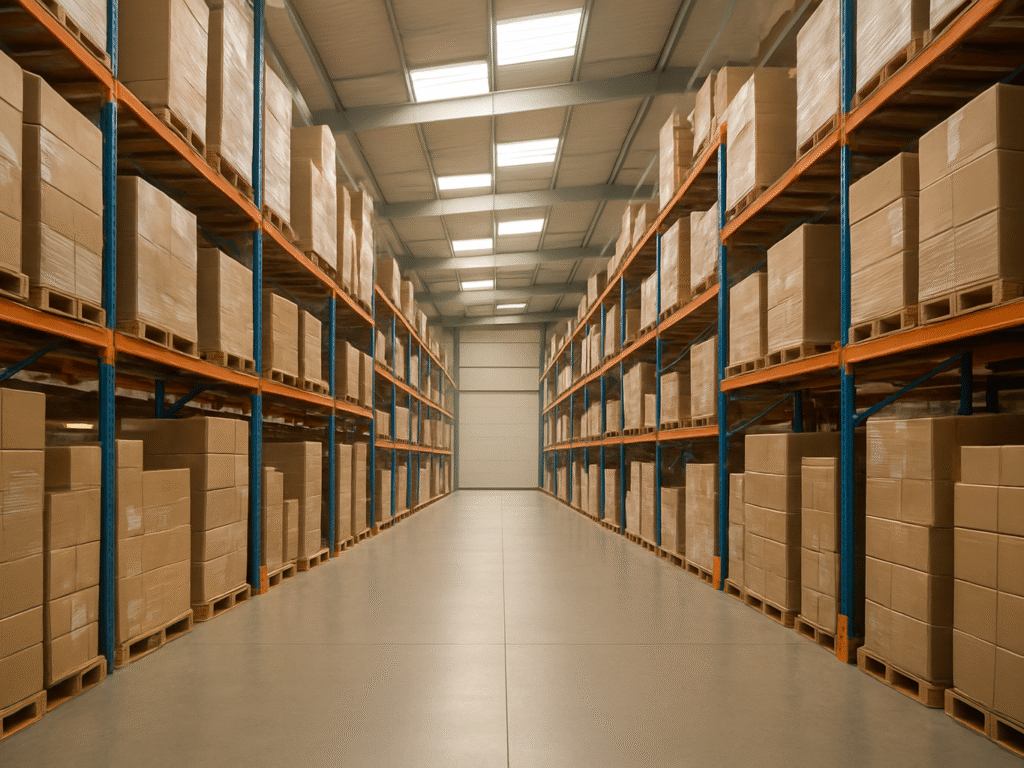
In essence, contract warehousing San Diego Shopify represents a strategic alliance between your business and a specialized third-party logistics provider. This arrangement provides dedicated storage space and customized logistics services, all under a legally binding agreement that typically spans one to five years. Unlike temporary storage solutions, contract warehousing creates a tailored operation specifically designed around your unique product requirements.
1. Definition and key features
Contract warehousing occurs when a third-party company agrees to store your inventory in their warehouse facility under a long-term partnership. The warehousing company maintains ownership of the facility but allocates specific space and resources exclusively to your operation. This arrangement often includes additional services beyond basic storage, such as receiving and shipping inventory, as well as fulfillment.
The distinguishing characteristics of contract warehousing include:
- Dedicated space and resources: Equipment, labor, and storage areas committed specifically to your business
- Fixed-term agreements: Typically spanning 1-5 years with predetermined renewal terms
- Customized services: Processes, technology, and handling procedures tailored to your specific products
- Predictable pricing: Usually structured as fixed monthly costs plus variable components
- Guaranteed capacity: Reserved space that remains available regardless of utilization
2. How it differs from public and private warehousing
Contract warehousing occupies the middle ground between public and private warehousing options, offering a balanced approach for growing Shopify businesses. The primary differences are:
| Aspect | Contract Warehousing | Public Warehousing | Private Warehousing |
| Exclusivity | Dedicated to one client | Shared among multiple clients | Company-owned facility |
| Commitment | Long-term (1-5 years) | Short-term, flexible | Permanent investment |
| Customization | Highly customizable | Limited, standardized services | Complete control |
| Cost Structure | Fixed + variable components | Pay-as-you-go | Capital investment + operating costs |
| Flexibility | Moderate scaling ability | High flexibility | Limited by facility size |
Public warehousing offers greater flexibility with shorter-term leases but provides more standardized services. Conversely, private warehousing gives complete control but requires significant capital investment and management resources. Contract warehousing offers the benefits of customization without requiring capital expenditures on physical infrastructure.
3. When contract warehousing makes sense
Contract warehousing is particularly appropriate for your Shopify business under specific conditions. Consider this option when:
- Your business maintains stable and predictable inventory levels, enabling effective resource planning.
- Your products require specialized handling, storage conditions, or expertise.
- Your operation benefits from deep integration with Shopify warehouse management San Diego systems
- You value service consistency and specialized knowledge.
- Your business has outgrown shared warehousing space, but isn’t ready for private warehousing.
- You seek cost savings on consistent volumes (contract warehousing typically costs 5-15% less than public warehousing for steady volumes)
Contract warehousing San Diego Shopify works best for businesses with consistent inventory levels and operations that benefit from customization. It makes it ideal for established Shopify stores with predictable order patterns rather than those experiencing large demand fluctuations or selling highly seasonal products.
For merchants, contract warehousing San Diego Shopify offers the dual benefits of dedicated resources and professional logistics expertise, without the capital investment required to build a facility.
Benefits of Contract Warehousing for Shopify Stores
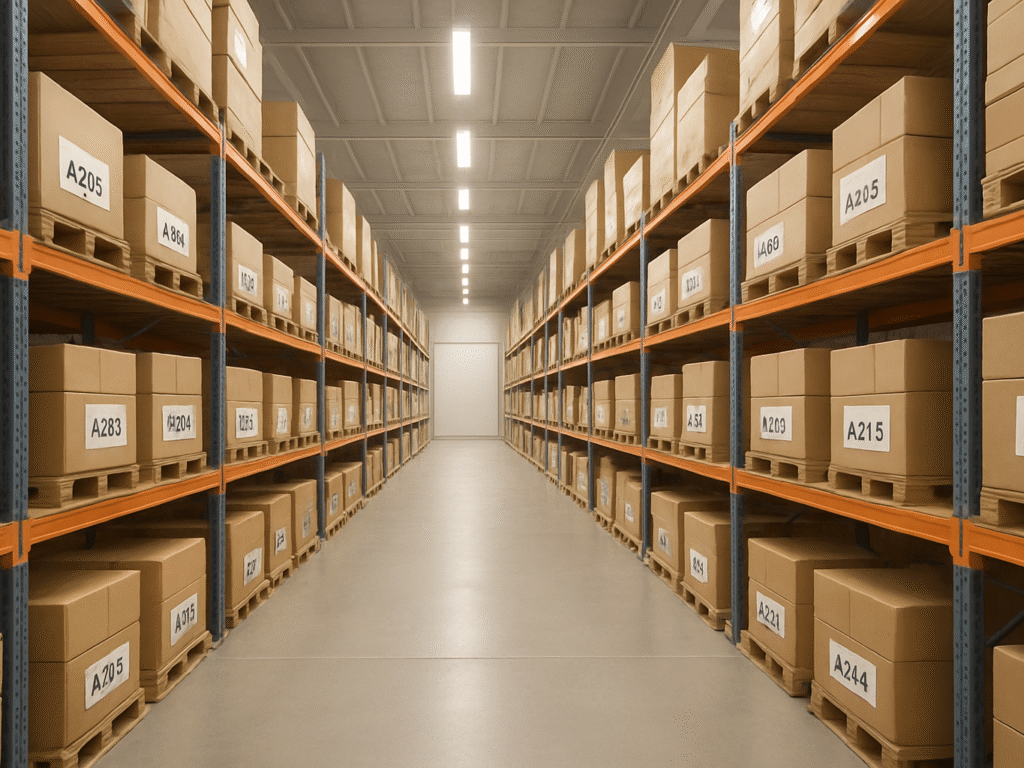
Contract warehousing San Diego Shopify delivers several measurable advantages for merchants who seek to optimize their fulfillment operations. As your business grows, these benefits become increasingly valuable in maintaining a competitive edge and operational efficiency.
1. Cost predictability and scalability.
One of the primary advantages of contract warehousing for Shopify stores is the financial predictability it offers. Unlike self-operated facilities, contract warehousing eliminates fixed costs associated with owning or leasing a warehouse, including utilities, security, and maintenance. Consequently, you can redirect these resources toward marketing, product development, and business growth initiatives.
Contract warehousing costs provide your business with consistent expenditure regardless of whether you’re experiencing slow or busy seasons. This predictability allows for more accurate financial planning and forecasting. Furthermore, the absence of maintenance and construction costs enables lower capital investments while improving your capital turnover ratio.
The scalability aspect is equally important for Shopify merchants. Contract warehousing allows you to:
- Adjust operations according to demand fluctuations without committing to excess space
- Adapt to unexpected seasonal surges without disruption
- Scale warehouse capacity up or down as your business requirements change
2. Dedicated space and service level agreements
Contract warehousing arrangements include legally binding service level agreements (SLAs) that outline performance metrics, service standards, and responsibilities. These agreements guarantee service periods, effectively preventing unexpected loss of warehousing capabilities.
Unlike shared warehousing options, contract warehousing provides dedicated space exclusively for your inventory. This arrangement reduces the risk of your products being confused with those of other brands. Additionally, professional warehousing providers often handle specialized inventory management activities, including:
- Receiving and validating incoming inventory
- Accurate inventory counting and quality checks
- Proper SKU storage and organization
- Unit tracking throughout the fulfillment process
3. Improved inventory control and security
Contract warehousing partners implement robust security measures and risk management strategies that might be costly for individual merchants to establish. These include comprehensive security systems, climate-controlled facilities, and adequate insurance coverage.
Notably, professional Shopify warehouse management San Diego systems enhance your operational efficiency by offering real-time inventory visibility. Many 3PL providers implement RFID and electronic inventory monitoring systems that streamline data transmission and minimize human error. These technologies enable you to:
- Monitor stock levels continuously across all locations
- Track individual units throughout the fulfillment process
- Receive automated alerts for low inventory levels
- Access detailed reporting on inventory performance
The advanced inventory management capabilities also improve your cash flow by preventing excess inventory situations that tie up valuable resources. Indeed, the combination of security, professional management, and technological integration creates a foundation for sustainable growth that would be difficult to achieve through self-fulfillment operations.
San Diego Shopify SEO: 2025 Local Ranking Tactics for E-Commerce Stores: Contract warehousing solves your fulfillment challenges, but what about driving traffic to your store? Learn proven local SEO strategies specifically for San Diego Shopify merchants. Discover how to rank higher in local searches and attract more qualified customers to your e-commerce business.
When to Choose Contract Warehousing Over 3PL
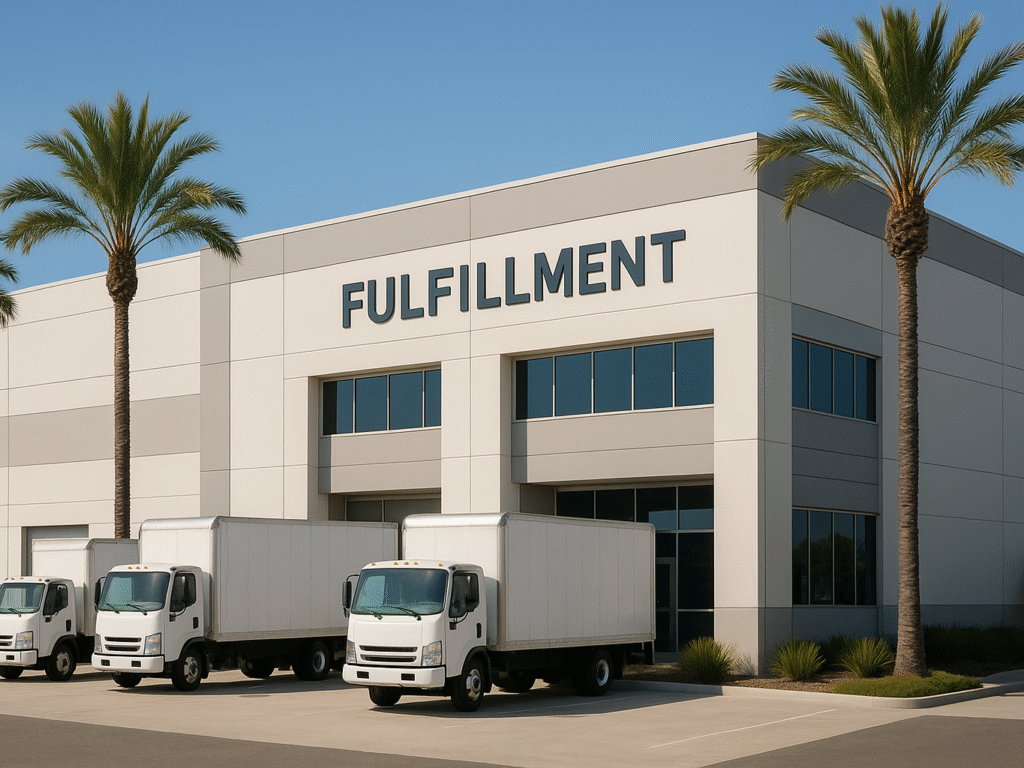
The 3PL vs self-fulfillment for San Diego stores decision, including contract warehousing and traditional 3PL services, represents a critical choice for growing Shopify merchants. Understanding when to make this transition can dramatically impact your operational efficiency and bottom line.
1. 3PL vs self-fulfillment for San Diego stores
When comparing 3PL vs self-fulfillment for San Diego stores processing fewer than 250 orders weekly, self-fulfillment often makes financial sense. As you grow, however, the equation changes. Self-fulfillment requires a significant investment of time in warehousing, inventory management, and order processing, potentially diverting focus from marketing and business development.
When evaluating 3PL vs self-fulfillment for San Diego stores, traditional 3PL providers offer comprehensive, end-to-end solutions that encompass warehousing, inventory management, and shipping. These services prove valuable when your time is primarily consumed with running and marketing your business. Although 3PLs typically handle your entire supply chain, they may lack the dedicated resources and customization that contract warehousing provides.
Given San Diego’s high real estate and labor costs, carefully evaluate total fulfillment expenses beyond just port proximity. When analyzing 3PL vs self-fulfillment for San Diego stores, many merchants discover that inland fulfillment locations reduce overall costs despite slightly longer port-to-warehouse distances. Additionally, understanding your Shopify website development costs upfront helps you allocate resources effectively between platform development and fulfillment operations.
2. Signs your business is ready for contract warehousing
Consider contract warehousing when:
- You have stable, predictable inventory flows, allowing for effective resource planning
- You need dedicated space and customized service, but aren’t ready for private warehousing
- You’re willing to handle certain aspects like marketing while outsourcing specific logistics functions
- You require specialized handling for particular products or inventory categories
Contract warehousing becomes appropriate when you need more control than standard 3PL services provide, yet don’t want the full responsibility of self-fulfillment. This hybrid approach in the 3PL vs self-fulfillment for San Diego stores decision works exceptionally well for established businesses with consistent order volumes seeking cost predictability.
3. Case examples of Shopify brands making the switch
Prymal, a growing Shopify brand, experienced 300% revenue growth (from $40,000 to $160,000 monthly) after switching to specialized fulfillment services, simultaneously saving $8,000 monthly in fulfillment costs. Meanwhile, Aviator Nation successfully migrated 17 stores to an integrated Shopify fulfillment solution, eliminating friction between online and retail operations.
Simon Pearce, another Shopify merchant, consolidated three separate systems onto a unified commerce platform, enabling real-time inventory visibility alongside reliable operations during peak seasons. Throughout these transitions, the businesses maintained personalized customer service while gaining operational efficiency, precisely the balance that contract warehousing aims to achieve.
Integrating Contract Warehousing with Shopify

Successful integration between your contract warehouse and the Shopify platform forms the backbone of efficient fulfillment operations. With logistics costs having jumped 19.6% in 2022 alone, implementing proper integration can substantially reduce these expenses through streamlined operations.
1. 3PL Shopify integration essentials
The foundation of effective contract warehousing integration begins with Shopify’s Fulfillment Orders API, which enables external vendors to sync order, customer, and shipping data between their fulfillment systems and your Shopify admin. This connection creates a unified data flow, where all your order, product, and customer information routes from a single source, providing real-time visibility across all sales channels.
Initially, your 3PL receives your inventory at their warehouse and organizes products systematically by SKU. Subsequently, when customers place orders, the details are automatically transmitted to the warehouse management system, triggering the processes of picking, packing, and shipping. Most importantly, tracking information syncs back to your Shopify store, keeping customers informed and up to date.
2. Shopify warehouse management, San Diego tools
San Diego merchants benefit from cloud-based Shopify warehouse management San Diego systems that offer flexibility without requiring investment in on-premise hardware. These WMS solutions track everything in your warehouse, show product locations, and manage the entire process from receiving to shipping.
Typically, a robust Shopify warehouse management San Diego WMS helps with planning work shifts, tracking performance metrics, and generating productivity reports. First, it automatically assigns appropriate staff numbers to different tasks based on projected order volume. Second, it monitors how efficiently workers pick and pack items, identifying opportunities for process improvement.
3. Real-time syncing and automation tips
Real-time inventory management through proper Shopify integration saves businesses an average of 10+ hours monthly by eliminating manual data entry and reducing physical counts. However, integration success depends heavily on your store’s technical foundation and search visibility. Implementing comprehensive Shopify SEO strategies ensures your optimized fulfillment operations support increased traffic and sales, maximizing your contract warehousing investment. Under these circumstances, consider implementing these automation capabilities:
- Create custom workflows with Shopify Flow that monitor inventory levels across multiple locations and send notifications when stock levels drop below specified thresholds.
- Implement serialized tracking to pinpoint specific orders throughout all stages of fulfillment.
- Configure your system to send order status updates automatically to customers from purchase through delivery.
- Use address verification data to reduce shipping errors and returns.
With proper integration, your San Diego contract warehouse can provide access to real-time analytics on inventory directly from your Shopify dashboard, ensuring you always have visibility into stock levels and can make data-driven decisions.
Best Shopify Fulfillment Apps for San Diego Stores (2025 Speed & Savings Guide): Ready to optimize your fulfillment operations? The right Shopify apps can streamline your warehouse integration and boost efficiency. Explore the top fulfillment apps for San Diego stores, complete with speed comparisons and cost savings analysis to help you choose the perfect solution.
Conclusion
Contract warehousing San Diego Shopify is a smart choice for expanding businesses seeking efficiency without full warehouse ownership. It provides dedicated space, customization, and predictable costs. By outsourcing to logistics experts, you gain control over operations without incurring heavy capital investment, making it an ideal solution for scaling stores that are ready for significant growth.
For Shopify stores shipping over 250 orders per week, contract warehousing bridges the gap between basic 3PL services and owning a physical facility. It offers specialized handling, stable inventory support, and scalability. San Diego’s location also adds value, enabling fast one- to two-day shipping across the Southwest and seamless port access for import-heavy businesses.
Choosing the right Shopify fulfillment strategies San Diego can significantly impact customer satisfaction and long-term profitability. With real-time Shopify integration, inventory tracking becomes effortless, and fulfillment is faster. Businesses that need control, flexibility, and consistency benefit the most. Ultimately, this strategy strikes a balance between logistics expertise and operational freedom, enabling Shopify merchants to focus on growth while delivering exceptional customer experiences.
FAQs on Contract warehousing San Diego Shopify
Q1. What is contract warehousing for Shopify stores?
Contract warehousing is a long-term partnership with a third-party provider offering dedicated storage and tailored logistics services. It’s ideal for Shopify stores needing consistent fulfillment support without owning a facility, typically under agreements lasting from one to five years.
Q2. How does San Diego’s location benefit Shopify merchants?
San Diego’s location supports fast one- to two-day ground shipping across Southern California, Arizona, and Nevada. It’s especially beneficial for Shopify merchants targeting the Southwest region and importing goods, thanks to easy access to major highways, ports, and border trade routes.
Q3. What are the main advantages of contract warehousing?
Contract warehousing provides stable costs, dedicated space, and tailored services. Shopify businesses benefit from better inventory control, scalable fulfillment, and improved security, making it a strong choice for brands with regular order volumes and special product handling needs.
Q4. When should a Shopify business consider contract warehousing?
Shopify merchants should explore contract warehousing when their order volume is steady, inventory needs are predictable, and they require special storage or handling. It’s perfect for brands scaling beyond self-fulfillment but not quite ready to invest in private warehousing.


